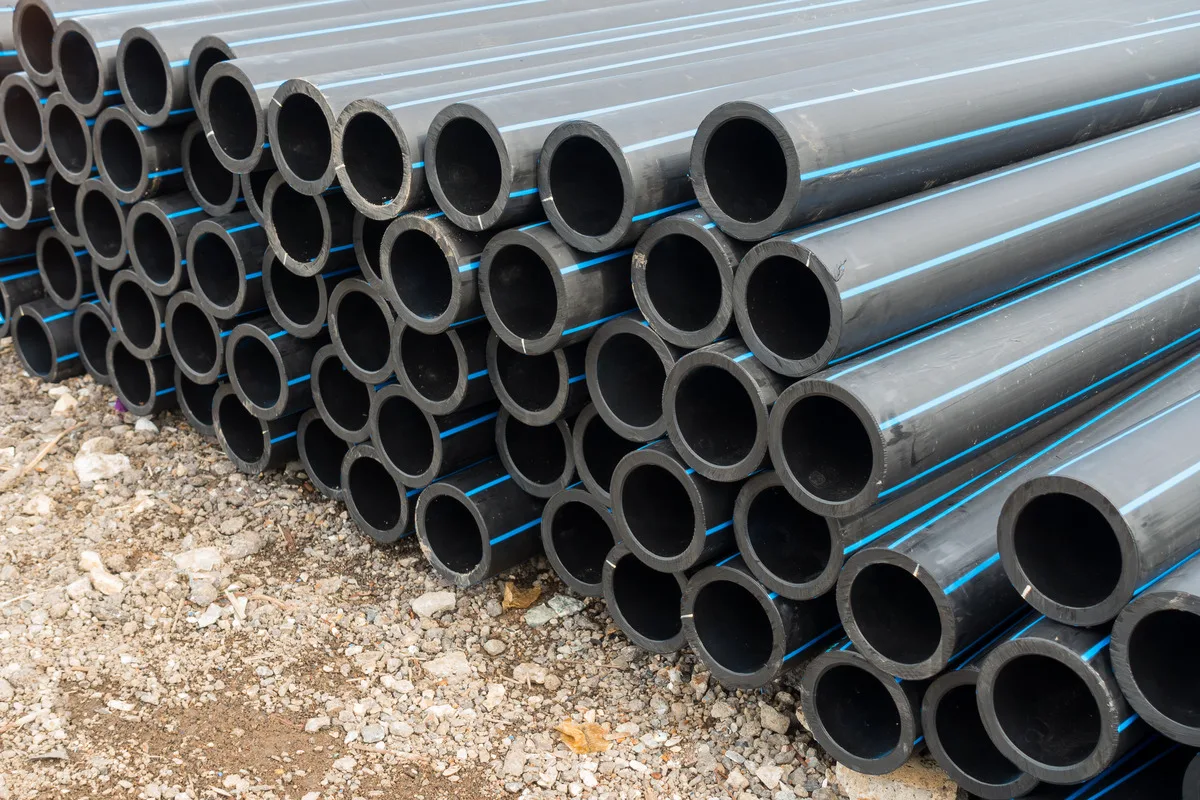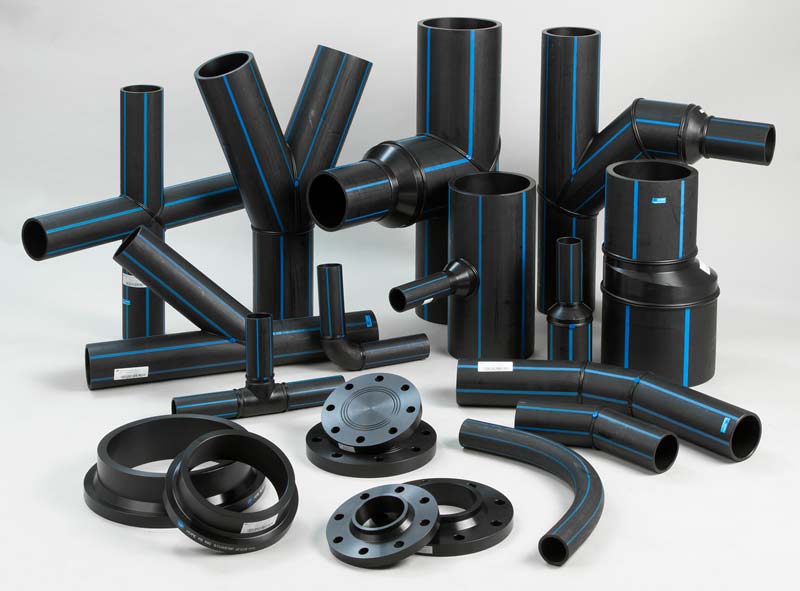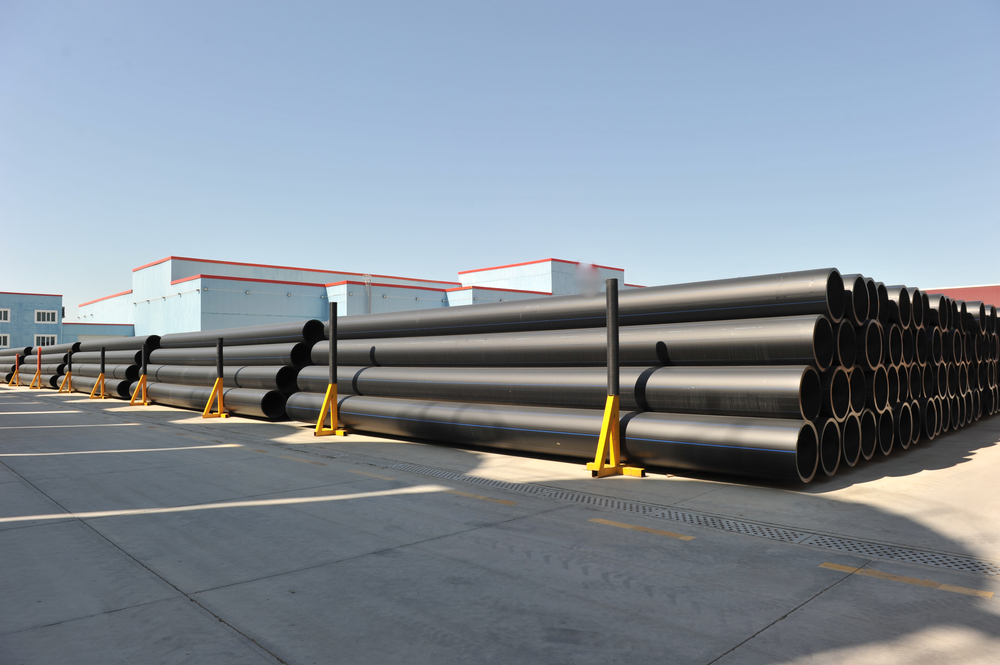Checking Out the Leading Pipeline Manufacturers: Quality, Reliability, and Technology
The pipeline manufacturing market stands at the crossway of integrity, innovation, and quality, driven by leading firms such as Tenaris and Vallourec. These makers are not just devoted to generating high-performance materials but are additionally introducing sustainable practices that address contemporary ecological problems (HDPE Pipe Supplier). As we take a look at the standards that define quality in pipeline remedies, it becomes evident that the landscape is swiftly developing. What certain technologies are arising, and exactly how are these improvements forming the future of pipeline facilities? The answers may redefine market standards in means that are not yet totally understood
Leading Manufacturers Overview
In the domain name of pipeline manufacturing, several vital players become leaders, each adding substantially to the sector's landscape. Companies such as Tenaris, Vallourec, and JFE Steel have actually established themselves as frontrunners by constantly delivering high-grade items that satisfy rigid industry standards. Tenaris, renowned for its ingenious services, concentrates on seamless and bonded pipelines, providing primarily to the oil and gas sector. Vallourec, a French international, concentrates on the manufacturing of costs tubular remedies, highlighting sustainability and progressed technology in its manufacturing processes.
JFE Steel, a major Japanese manufacturer, is recognized for its comprehensive array of steel pipes, particularly those made use of in power and facilities jobs. Their dedication to r & d has actually enabled them to produce high-performance materials that stand up to rough environmental problems. In addition, firms like U.S. Steel and National Oilwell Varco have broadened their market existence by diversifying their product offerings and improving operational efficiencies.
These leading suppliers not only control the market yet also drive technology within the sector, setting benchmarks for high quality and integrity that gamers desire accomplish. Their contributions are essential for satisfying the increasing demand for resilient and reliable pipeline remedies worldwide.
Criteria for Top Quality Analysis
Quality evaluation in pipeline manufacturing depends upon two critical requirements: material toughness requirements and producing process performance. Guaranteeing that materials satisfy strenuous resilience standards is vital for the long life and dependability of pipes. Additionally, enhancing the manufacturing procedure can improve efficiency while maintaining premium quality, inevitably affecting total performance and security.
Product Resilience Specifications
Assuring the durability and integrity of pipeline products is vital for maintaining framework honesty and functional effectiveness. Material durability criteria play an essential role in evaluating the quality of pipes, dictating the efficiency and lifespan of the products utilized in building. Manufacturers should follow a series of extensive standards, consisting of those established by companies such as ASTM International and the American Petroleum Institute (API)
These criteria evaluate numerous elements, including rust resistance, tensile toughness, and exhaustion performance. For instance, pipes used in destructive settings call for materials that can withstand chemical deterioration, while those based on high-pressure conditions should display outstanding tensile stamina.
Furthermore, factors such as temperature level fluctuations and ecological conditions have to be taken into consideration, as these can substantially influence product behavior gradually. Manufacturers frequently use sophisticated testing techniques, consisting of increased aging tests, to mimic lasting wear and assurance that products go beyond or meet industry benchmarks.
Manufacturing Process Effectiveness
Manufacturers' capability to maximize manufacturing procedure effectiveness is crucial for generating premium pipelines that satisfy rigorous market requirements. Efficiency in manufacturing straight affects cost management, production timelines, and general product stability. To attain this, leading pipeline producers execute sophisticated strategies such as lean manufacturing, automation, and real-time information analytics.
Lean producing concepts are necessary in reducing waste and optimizing resource use. By enhancing procedures and removing redundancies, makers can enhance productivity while making sure constant high quality. Automation innovations, including robotics and computer mathematical control (CNC) machines, play an essential role in boosting precision and reducing human error, thereby raising the dependability of the final product.
In addition, making use of real-time data analytics enables manufacturers to keep track of manufacturing procedures constantly, enabling them to recognize bottlenecks and make prompt adjustments. This positive technique not only improves performance however also supports high quality assurance protocols by ensuring compliance with governing requirements.
Dependability in Pipeline Solutions
Reliability in pipeline remedies is critical, as it straight influences the safety and security and performance of liquid transportation systems. Trick variables consist of the longevity of materials used, adherence to strenuous screening and accreditation standards, and the consolidation of cutting-edge material options that enhance performance. Comprehending these components is crucial for producers aiming to supply trustworthy pipeline framework.
Importance of Longevity
Attaining sturdiness in pipeline solutions is essential, as it straight impacts the long-lasting performance and safety and security of facilities. Durable pipes are important for lessening upkeep costs and decreasing the probability of disastrous failures. This integrity is specifically important in industries such as oil and gas, supply of water, and wastewater monitoring, where the effects of pipeline failing can be severe, both financially and environmentally.
The products and making processes employed by pipeline manufacturers play a considerable duty in establishing the toughness of the end product. Making use of top notch raw products, advanced innovations, and ingenious style principles assures that pipelines can withstand numerous stressors, including stress fluctuations, temperature level variations, and corrosive settings.
Moreover, the longevity of pipelines is very closely connected to their capacity to resist exterior aspects such as soil movement, seismic task, and chemical direct exposures. Efficient deterioration defense approaches, such as finishings and cathodic protection, even more enhance the durability of pipes, safeguarding them against degeneration over time.
Buying sturdy pipeline remedies eventually equates to increased operational performance, reduced downtime, and enhanced security, attesting the important value of toughness in modern pipeline manufacturing.
Evaluating and Qualification Requirements
In the domain of pipeline options, extensive testing and certification standards are important to guarantee the dependability and safety and security of framework. These criteria work as standards for evaluating the performance and toughness of pipeline products and systems, confirming they meet particular regulative and sector demands.
Examining processes commonly incorporate numerous approaches, including stress screening, hydrostatic evaluations, and non-destructive screening methods. These analyses are vital for identifying possible weaknesses or flaws in the materials before they are deployed in real-world applications. Additionally, certification by acknowledged companies assurances that makers stick to established guidelines, which promotes count on among stakeholders, including designers, end-users, and contractors.
Several top pipeline suppliers take part in continuous monitoring and enhancement of their testing protocols to adjust to advancing market requirements and technical improvements. Conformity with requirements such as ASTM, ASME, and ISO not just enhances product reliability however likewise minimizes the threat of ecological occurrences connected with pipeline failures.
Innovative Material Solutions
The advancement of ingenious product options has actually transformed the landscape of pipeline manufacturing, boosting both efficiency and sturdiness. Advanced products such as high-density polyethylene (HDPE), cross-linked polyethylene (PEX), and composite materials have actually become game-changers, offering superior resistance to corrosion, temperature level fluctuations, and pressure variations. These materials not just prolong the lifespan of pipes however also minimize maintenance costs, making sure trustworthy long-lasting efficiency.
Furthermore, makers are significantly adopting wise materials that integrate sensing units for real-time surveillance. This innovation permits positive maintenance, significantly improving dependability by spotting leakages or structural weaknesses before they rise into crucial failings. The integration of nanotechnology has additionally caused the growth of layers that enhance the resilience of pipes against abrasion and chemical direct exposure.
Sustainability is one more key emphasis, with producers checking out bio-based compounds and recyclable materials that decrease environmental influence. As governing requirements remain to develop, the emphasis on ingenious material solutions comes to be extremely important in meeting stringent security and ecological demands. Eventually, these improvements not only improve the reliability of pipeline systems yet additionally contribute to the general efficiency and sustainability of power transport facilities.
Developments in Pipeline Innovation
Innovations in pipeline modern technology are transforming the industry by boosting efficiency, safety, and ecological sustainability. Current improvements focus on clever pipeline systems that make use of sensing units and IoT innovation to keep track of conditions in actual time, enabling positive maintenance and decreasing the danger of failures. These systems can discover leaks, pressure adjustments, and various other abnormalities, enabling for rapid response and decreasing ecological effect.
Furthermore, the growth of innovative products, such as corrosion-resistant and composite alloys, substantially expands the life expectancy and reliability of pipes. HDPE Pipe Supplier (American Plastics LLC HDPE Pipeline Manufacturer). These materials lower maintenance costs and enhance efficiency in harsh atmospheres, making them optimal for gas, water, and oil transport
Automation and robotics are playing an important duty in pipeline building and examination. Drones and robotic tools help with studies and assessments of hard-to-reach areas, making certain comprehensive evaluations without endangering security.
Ingenious designs, such as modular pipeline systems, enable for greater flexibility in setup and modification, providing to the vibrant requirements of the power sector. With each other, these technical improvements not just improve operational performance but likewise add to a much more durable and lasting pipeline facilities, leading the way for a greener future.
Case Research Studies of Success
Throughout various markets, effective executions of sophisticated pipeline technologies demonstrate significant improvements in operational effectiveness and security. One remarkable case is the deployment of smart pipeline tracking systems in the oil and gas industry, where real-time data analytics have lowered leak discovery times by over 50%. This not only decreases environmental risks yet additionally enhances the overall stability of pipeline infrastructure.

Furthermore, a major manufacturer carried out robot assessment modern technologies in its pipeline upkeep procedures, resulting in a 40% enhancement in assessment effectiveness. This strategy has streamlined maintenance timetables and significantly decreased downtime.
These situation researches highlight exactly how leading pipeline makers are leveraging innovative innovations to cultivate reliability and operational quality, eventually setting new standards for the industry. As these successes remain to unravel, they lead the way for further improvements in pipeline manufacturing and monitoring.

Ecological Sustainability Practices
Regularly, pipeline makers are prioritizing environmental sustainability techniques to reduce their eco-friendly impact and enhance the long life of their items. This dedication is shown in numerous initiatives targeted at reducing waste, conserving energy, and using lasting products throughout the manufacturing procedure.

Numerous makers are adopting advanced innovations that decrease emissions and energy usage. The integration of automated systems and energy-efficient equipment helps streamline production while decreasing reliance on fossil gas. In addition, business are significantly transforming to green products, such as recycled steels and bioplastics, which not only decrease the ecological effect yet also advertise a round economy.
Furthermore, pipeline suppliers are executing extensive lifecycle analyses to assess view website the ecological implications of their items from beginning to disposal. This approach allows them to determine opportunities for renovation and foster responsible sourcing and waste administration methods.
Partnership with environmental organizations better boosts these efforts, as producers seek to straighten their procedures with international sustainability goals. Inevitably, these environmental sustainability practices not just add to a much healthier planet yet also position producers as accountable leaders in the sector, interesting environmentally mindful stakeholders and consumers alike.
Future Patterns in Pipeline Manufacturing
As the need for more efficient and lasting facilities grows, pipeline manufacturing is positioned for substantial innovations that will improve the industry. Secret fads anticipated in the coming years consist of the assimilation of advanced materials, such as composite and corrosion-resistant alloys, which improve toughness while lessening ecological impact. Manufacturers are also expected to adopt innovative manufacturing methods, like additive manufacturing and automation, to enhance procedures, minimize waste, and lower prices.
The rise of smart pipeline modern technologies, including sensors and IoT tools, will certainly enable real-time tracking and predictive maintenance, thereby enhancing security and operational performance. This digital makeover will not only maximize resource administration yet likewise help with conformity with stringent ecological policies.
Sustainability will certainly remain a central emphasis, driving suppliers to purchase eco-friendly methods, consisting of energy-efficient production techniques and recycling initiatives. As the worldwide focus on climate change heightens, pipeline producers will require to adapt by developing solutions that meet both economic and environmental needs.
Often Asked Inquiries

What Industries Primarily Use Pipeline Products From These Manufacturers?
Pipeline products are primarily used in markets such as oil and gas, wastewater and water monitoring, chemical building and construction, processing, and mining. These markets depend on effective, sturdy, and risk-free transport of liquids and products.
Just How Do Manufacturers Ensure Conformity With International Pipeline Standards?
Manufacturers guarantee compliance with global pipeline criteria by carrying out strenuous high quality control procedures, carrying out regular assessments, sticking to well-known governing frameworks, and purchasing worker training to advertise awareness and understanding of safety and security and high quality needs.
What Is the Typical Life Expectancy of Pipelines From Leading Manufacturers?
The typical life expectancy of pipelines from leading manufacturers normally varies from 30 to 100 years, depending upon product, environmental problems, and upkeep techniques. American Plastics LLC HDPE Pipeline Manufacturer. Regular examinations and adherence to industry requirements noticeably affect long life and performance
Exist Certifications Certain to Pipeline Production Top Quality?
Yes, numerous accreditations exist for pipeline making high quality, including ISO 9001 for top quality monitoring systems and API standards details to pipelines. These accreditations assure adherence to rigorous security, performance, and environmental requirements within the sector.
Exactly How Do Manufacturers Manage Pipeline Maintenance and Fixes?
Manufacturers normally apply a proactive maintenance method that consists of normal examinations, monitoring systems for early detection of problems, and a structured repair service protocol. This approach guarantees pipeline stability, minimizes downtime, and improves general functional effectiveness.
Quality assessment in pipeline manufacturing pivots on two essential criteria: material toughness standards and making procedure effectiveness - HDPE Pipe Supplier. Product longevity requirements play a vital role in assessing the quality of pipes, determining the efficiency and life-span of the products made use of in construction. The products and making processes utilized by pipeline manufacturers play a significant duty in establishing the sturdiness of the last item. The average life-span of pipes from leading suppliers normally varies from 30 to 100 years, depending on material, ecological conditions, and upkeep methods. Yes, different qualifications exist for pipeline manufacturing quality, consisting of ISO 9001 for quality monitoring systems and API standards certain to pipelines